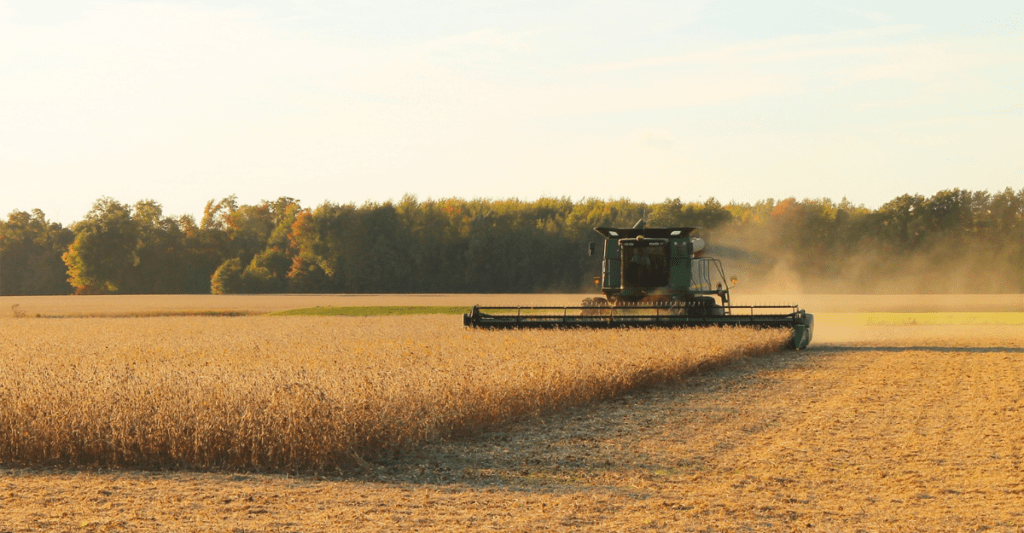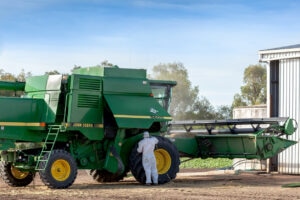Keep an eye out for the hidden hazards on your farm!
Fatigue is one of the biggest safety hazards on farms during peak seasonal times. There is a danger during these periods that production is prioritised over safe work practices, resulting in a greater risk of injury.
Over the past two years, COVID has added to this pressure. Farmers have found it difficult to source seasonal backpackers and foreign workers, increasing the workload on farm families who have to work harder and longer to manage operational requirements. It is important during these peak times not to let safety fall to the bottom of the priority list.
A recent WorkSafe prosecution in WA over breaches in fatigue management legislation demonstrates the consequences of noncompliance in this area.
A WA transport company was fined a total of $89,000 and ordered to pay $6,807 in costs after being found guilty of 24 charges under workplace fatigue management legislation.
The logistics company primarily transports machinery and portable buildings in Perth and Karratha and employs 26 commercial vehicle drivers, 10 of whom had breached fatigue management regulations.
WorkSafe inspectors investigated how the company handled fatigue management, focusing on auditing the driver’s worktime, non-work time and breaks. They found the drivers did not have rest breaks when it was required by law and records were not kept up to date.
This case is an important example for farmers and their employees to consider as operating heavy machinery for long hours can become normalised during peak seasonal periods. Farmers need to ensure their workers have rest breaks, and records are kept of hours worked to prove required breaks have been taken.
The nature of agriculture can put workers at risk of injury due to fatigue. Lack of sleep during busy periods, intense work, and exposure to harsh temperatures can all contribute to fatigue. Fatigue is more than just feeling drowsy, pushing yourself or your workers to the limit for extended periods, with no time to rest and recover can lead to slower reaction times, poor concentration, increased mistakes, lack of energy, headaches, dizziness and microsleeps.
Being fatigued whilst working with heavy machinery and unpredictable livestock can be deadly on a farm, so it is important farmers are aware and heed the warning of this prosecution. Farmers need to comply with fatigue management laws and take steps to mitigate this risk in their businesses.
Strategies to mitigate the risk of fatigue can include, having a fatigue management plan that is implemented during peak periods, the plan should include control measures including planning for the appropriate level of staff resources during the busiest periods, structured breaks, and record keeping and reviews. Workers should be encouraged to prioritise sleep, eat healthily, drink water, and limit caffeine and alcohol to enable them to rest and recover during their breaks.
Other strategies to manage fatigue on your farm can include ensuring:
- Workers have at least one day off a fortnight with appropriate and prescribed breaks in between,
- Workers have adequate sleeping facilities and the opportunity for at least 7 hours of sleep before their shift,
- Where practicable limit the length of shifts to 12 hours, and
- Avoid operating during regular sleeping hours.
Where fatigue may affect a person’s ability to work safely, it must be identified, assessed and controlled like other hazards in the workplace. Fatigue in agriculture is a big issue every peak season and should be included in your risk register.
If you are onboarding new employees for harvest ensure they are aware of the risks and prioritise safety, read more of our tips here.
For more information about Farm Safety contact ProcessWorx on (08) 9316 9896 or enquiries@processworx.com.au
Follow ProcessWorx on LinkedIn, Facebook, Instagram, YouTube, and Twitter to keep up with the latest HR and WHS news.






